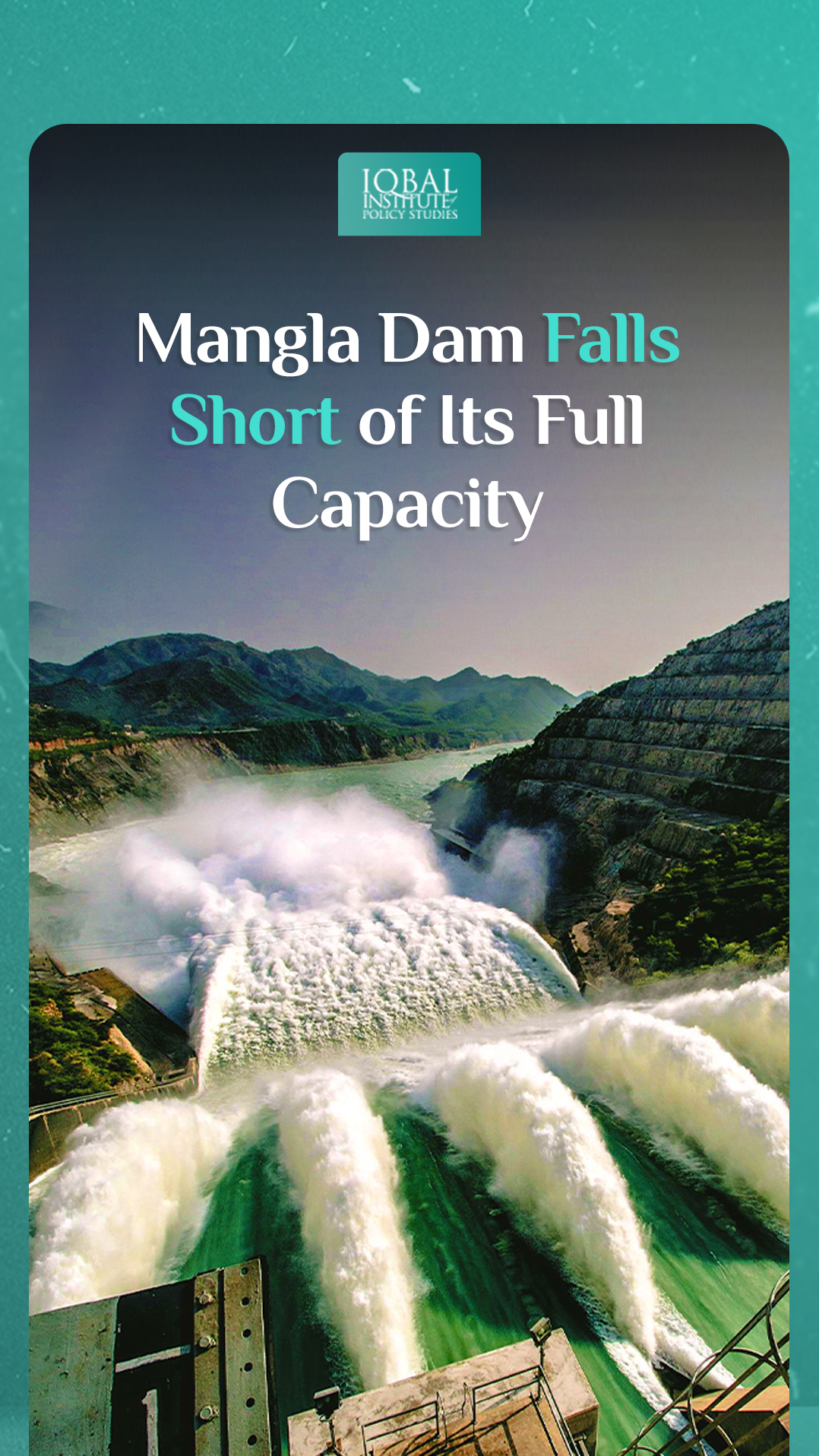After the monsoon, the Mangla dam is expected to face a 46.83% shortfall of its full capacity (Tribune, 2022). According to the statistics issued by the Federal Flood Commission (FFC), the water level in the dam stood at 1,193.05 feet against its maximum conservation level of 1,242 feet.
Mangla Dam is the biggest water reservoir of the country which is not filling up to its maximum capacity this year, jeopardising 13 million acre feet (MAF) Rabi supplies to Punjab (Tribune,2022). Around 10 districts of Central Punjab are solely dependent for water supplies during Kharif and Rabi season.
Mangla Dam is a multipurpose dam on the river Jhelum in the Mirpur district of Punjab. It is ranked as the 7th largest dam in the world which is used for irrigation purposes and producing hydro-electric power. The Mangla dam was one of the first 2 dams built to strengthen Pakistan’s ability to irrigate its crops.
However, despite having a huge irrigation network, Pakistan faces water scarcity issues due to several factors including increasing cost of water development and wasteful use of water supplies. The growing water scarcity issues has adversely affected the agriculture development of the country. Globally, agriculture is considered as the largest water user, consuming around 80%-90% of available fresh water.
However, the availability of water for agriculture purposes is gradually reducing due to poor water management. Many potential dams sites exist on river Indus and its tributaries, which can make a substantial contribution to irrigation supplies for new irrigation projects. Pakistan being an agrarian country urgently needs available water supplies to enhance the crop and water productivity. Currently, the country is facing a major loss of its wheat production particularly caused by the devastating floods and shortfall of the water capacity of the country’s major reservoir.



Leave a Reply